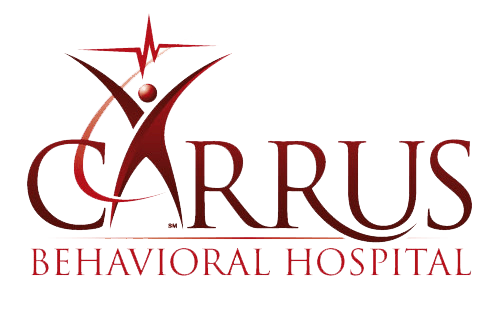
Seeing your adolescent struggling with obsessive-compulsive disorder (OCD) can be very frustrating. The confusion surrounding the disorder often makes things worse.
Many myths and misconceptions exist about OCD. In this article, we will discuss OCD symptoms and treatment, and clarify some of the myths and misconceptions about it.
What is OCD?
Obsessive-compulsive disorder is a mental health condition that affects people of all ages, including adolescents. It is characterized by unwanted, intrusive thoughts (obsessions) and repetitive behaviors or mental acts (compulsions) performed to ease the anxiety caused by these thoughts. For adolescents, this means dealing with a constant cycle of obsessive thinking and compulsive actions that can interfere with their daily lives.
According to The American Academy of Child and Adolescent Psychiatry, OCD affects approximately one in 200 children and teenagers. It typically goes undetected for years before being diagnosed. As a parent, you do not want to delay seeking treatment for the condition once you notice the signs and symptoms.
Debunking Myths About OCD
There are many myths about OCD, which can be harmful to families affected by it. Here are some common myths debunked:
Myth 1: OCD is Just Being Overly Neat and Organized
Many people think OCD is only about being overly tidy or organized. While some with OCD may have obsessions related to cleanliness, the condition is much more complex. Obsessions can also involve fears of harm, intrusive thoughts, or a need for things to be perfectly aligned.
Myth 2: OCD is Just a Phase for Children
Some believe that OCD is something children will simply outgrow, but this is not true. OCD is a chronic condition that often persists into adulthood. Early intervention is crucial for helping children manage symptoms and preventing the disorder from worsening.
Myth 3: OCD is a Personality Quirk
Thinking of OCD as just a personality trait undermines the seriousness of the disorder. A child with OCD experiences stress and anxiety. The thoughts and compulsions can be disruptive to daily life. It’s important to recognize OCD as a real mental health condition that requires understanding and appropriate treatment.
Signs and Symptoms of OCD in Adolescents
Here are some signs and symptoms of OCD in teens:
1. Persistent Fears
Teens may experience intrusive fears about contamination, illness, or harm. For instance, they might worry excessively about germs, AIDS, or contaminated food.
2. Grooming Rituals
Engaging in repetitive grooming behaviors, such as excessive handwashing, showering, or brushing teeth, to alleviate anxiety.
3. Checking Rituals
Repeatedly checking things like whether appliances are turned off, doors are locked, or homework is completed to prevent harm or ensure safety.
4. Rituals Linked to Obsessions
Performing rituals, such as repeatedly checking certain things or handwashing, based on the fear that something bad will happen if they stop.
5. Repetitive Actions
Engaging in repetitive behaviors like going in and out of doorways, moving through spaces in a specific manner, or rereading and rewriting text.
6. Undoing Rituals
Performing actions to “undo” contact with perceived contaminants, such as touching things multiple times or using specific cleaning methods.
7. Order and Arrangement
Arranging or ordering objects in a particular way to reduce anxiety or prevent harm.
8. Counting Rituals
Counting items or actions as part of a ritual to manage obsessive thoughts.
9. Hoarding and Collecting
Accumulating items of no apparent value as part of a compulsion.
10. Cleaning Rituals
Excessive cleaning of the house or personal items to avoid contamination or maintain cleanliness.
Therapy for Teens with OCD
If you suspect OCD in your teen, the first step is to consult a mental health professional for an evaluation.
Treatments for OCD usually consist of behavior therapy and medication:
1. Cognitive-behavioral therapy (CBT)
Cognitive behavioral therapy is a well-established treatment for pediatric OCD. It typically requires 12–20 weekly sessions with a therapist. It involves exposing teens to their fears gradually.
For example, if a teen fears germs, they might touch a dirty surface (exposure) and then resist the urge to wash their hands (response prevention). The goal is to let anxiety decrease naturally without performing the compulsive behavior.
Tasks are set up in a step-by-step manner based on a hierarchy of fears. These tasks are practiced both during sessions and as homework. Over time, this repeated exposure helps reduce the intensity of the anxiety.
Research shows that CBT can reduce symptoms by as much as 65 percent. It is effective for young children when adapted appropriately and can lead to lasting improvements that are maintained for up to 18 months. It is also proven effective in routine clinical settings.
2. Selective Serotonin Reuptake Inhibitors (SSRIs)
SSRIs are a class of medications commonly used to treat OCD. These medications increase serotonin levels in the brain. The goal is to effectively manage obsessive thoughts and compulsive behaviors.
SSRIs help alleviate symptoms by balancing brain chemicals that affect mood and anxiety. This can make other treatments like cognitive behavior therapy more effective. The choice of SSRI and dosage is determined by a healthcare provider based on the teen’s specific needs and response to the medication.
Both behavior therapy and medication can be life-changing for teens with OCD. They address both the cognitive and physiological aspects of the disorder.
OCD in adolescents is a complex condition that requires understanding and compassion from their families. For parents seeking further guidance, searching for therapy for adolescents near you is essential. Taking proactive steps can make a significant difference in the lives of adolescents with OCD and their families.
OCD Counseling for Teens Near Me in Sherman, TX
Carrus Behavioral Health Hospital specializes in providing care for children between the ages of 5 and 17. We are a state-of-the-art behavioral facility with some of the most skilled and compassionate mental health specialists. We offer OCD treatment as part of our inpatient and outpatient services.
Our team at Carrus Behavioral Health Hospital works together to create the best outcomes for our patients. For any questions or to schedule an appointment with us, call our office today at (903) 870-1222 or use our appointment request form. Your child’s mental health is our top priority.

